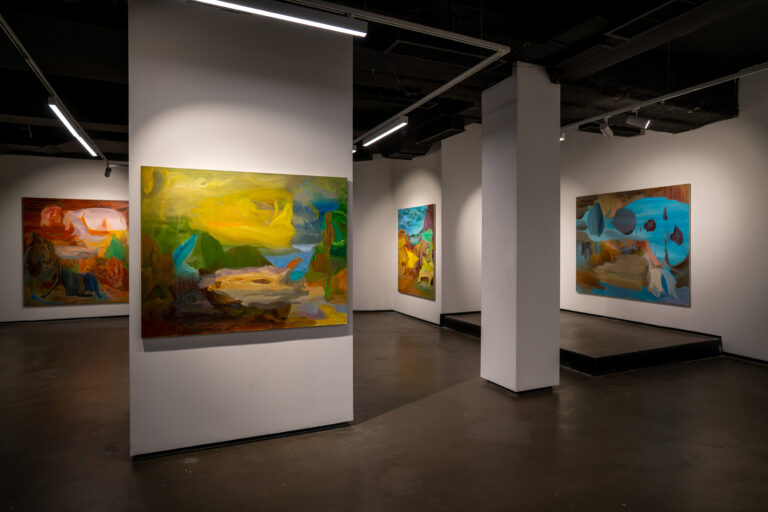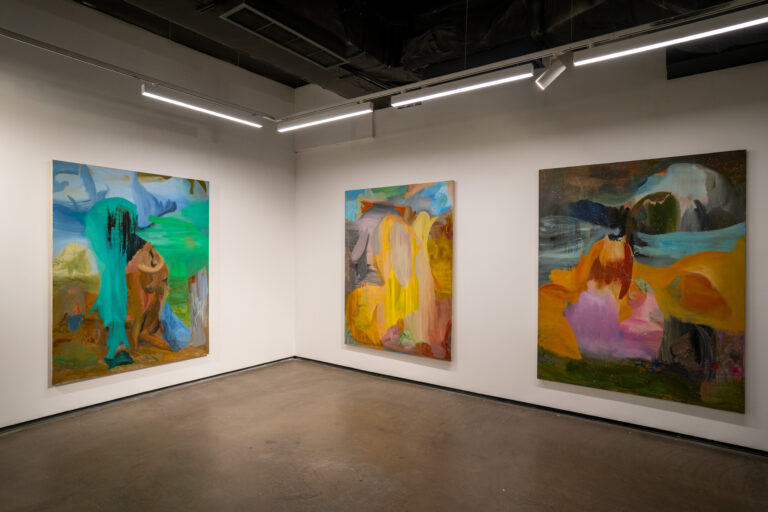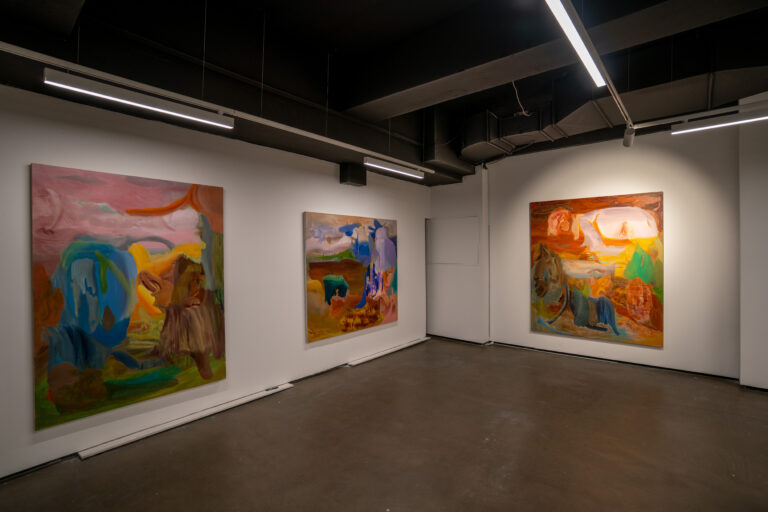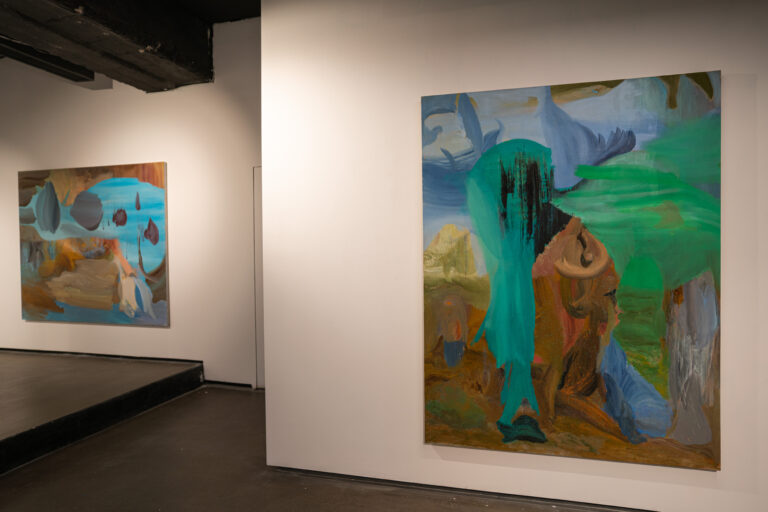



Milko Pavlov’s painting seems to have been formed in a time prior to language, prior even to the beginning of human history, when earth and sky had not undergone disseverance from each other—a separation that would allow the creation of the world, but also open up an infinite chasm between them and the impossibility of achieving wholeness.
The landscapes of his brushstrokes create a space that we may classify as a world, but not as reality. Reality is full of concepts; it is defined through language, it is structured, analysed, a product of the ego and its comprehension; reality is human experience and culture, the secondary and already hardened body, aware of its nakedness and thus of its mortality, having constructed axes and transversal lines along which to walk on tiptoe and orient itself. The world is liquid and pure matter, the fabric of the absolute.
Reality is a function of humanness, the world of the Divine Logos.
In a series of large-format canvases, the artist designs places that may be reminiscent of mountain landscapes, rocky shores, a cosmos. Formed through the intuitive use of colours (intuitive, because intuition is a product of the subconscious, and colourists—as Milko Pavlov describes himself—generally rely more on their own sense than on the rationalisation expressed by the line, let us say), the paintings seem to appear through manifesting the integral memory of the celestial/the world of ideas embedded in our collective memory. Milko Pavlov’s painting seems to resolve the task of language, constantly suffering failure in its attempt to express the absolute, to reach a veracious knowledge.
In the ‘Recently Ahead’ exhibition, Milko Pavlov situates his painting in another time yet to be reached. The works are ‘dated’ in years that, for us, have not occurred: 2109, 2099, etc. (according to the conventional reading of time—linear, Christian, 2022). Thus, in the artist’s abstract landscapes, time is disempowered, as in the Garden of Eden, where Man does not cognise its tireless action, where being is still whole. In this respect, his painting invariably remains somewhat elusive—it is here, it is present, but it alludes to somewhere else, reminding us of that place to which we want to return. In the white cube of the gallery space, itself a kind of temple, which should tear visitors away from the world of the vitally necessary and practically useful, Milko Pavlov’s exhibition transcends the reality of the matter encasing us. His oil paintings on canvas are a bridge to the world of the invisible—their medium a conduit to the unspoken.
Boyana Dzhikova, art historian, Sofia, September 2022
© RAPPORT Media 2022